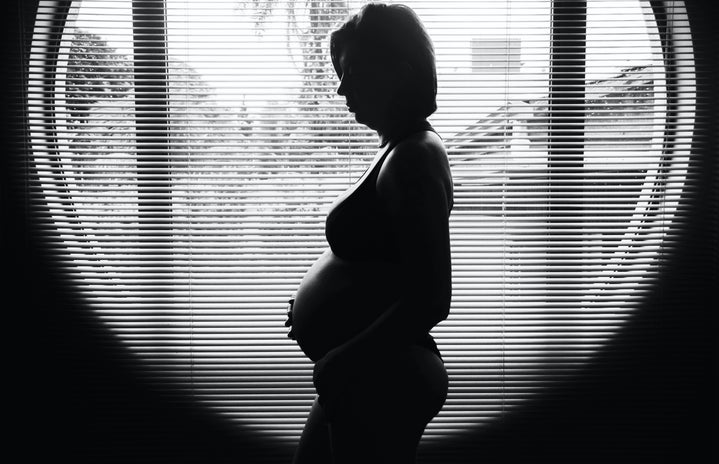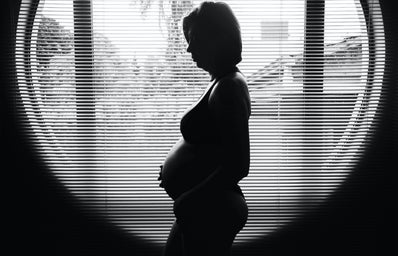The issue of abortion and female autonomy over their own bodies have once again been thrust into the spotlight, thanks to laws being passed in places like Texas, that sparked outrage around the globe.
Abortions aren’t an easy and seamless process and decision. Like many surgeries, they’re life-altering, painful to recover from, and have long-term effects on the individual such as damage to the womb and cervix, infection and in serious cases, death. Many also experience more difficulty conceiving in the future, when they are ready to bring life into the world.
Despite being a strongly pro-choice woman and an advocate for healthy debates, I believe the demonizing of ‘the other side’ must stop because both sides are valid.
What’s the case for being pro-choice?
A common misconception is that feminists are always pro-choice, as being pro-choice gives a woman the option to choose and hence, in a way, power and control over their own lives. That’s not always true though, as they aren’t one in the same. You can be a feminist and pro-life, too!
As mentioned earlier, in a pro-choice “utopia”, expecting women would be given free rein over their bodies and have the power to make the choice they think best suits their life at the current moment. A student from any average household, for example, isn’t likely to have enough savings to provide the child with a stable upbringing, especially if the family or the father of the baby isn’t supportive of raising it hand-in-hand with the mother. Other aspects like emotional and mental stability play huge roles in both the mother and baby’s lives as well: Would it be fair to the innocent child to be born into a family that isn’t financially or emotionally ready to raise it?
Pro-choice policies can also protect women who become pregnant due to rape. It is already difficult for a survivor of sexual assault to recover from the trauma, but having to give birth to an unwanted child as a result of the assault can take a huge toll not only on their body, but also their fight against deep emotional wounds. In some cases, banning rape victims from abortion results in them giving up the baby for adoption, or even abandoning it. It seems hardly pro-life if the child has to constantly face destitution, or lead an unfulfilling life when adopted into unsuitable families.
Abortions are still going to happen, whether it’s legalised or not. Without proper healthcare facilities and experts to take care of the process, women will result to way more dangerous alternatives that could endanger their lives, and not just the foetus. In this case, wouldn’t it be better to choose the safety of at least the mother, rather than risking the lives of both mother and baby?
What’s the case for being pro-life?
Most of my pro-life friends choose the stance due to religious reasons. While many believe that there is a time at which a foetus becomes an actual feeling “person”, pro-lifers see the zygote (the fertilised egg) as inherently human, so to take away life without its consent equates to murder. This represents the possibly most controversial and dividing, yet most unanswerable, topic within the abortion debate: When does “humanness” start? Who gets to decide what “humanness” is — science or belief? And what gives authority to one or the other?
Other reasons pro-lifers cite include preventing women from being coerced into abortion by others and suffering physical and psychological consequences. Some claim that women shouldn’t have to abort their child to participate in society, and the woman vs. baby dichotomy should be abolished — structural changes in society need to take place to address the problems faced by mothers and pregnant women, rather than simply using abortion to avoid such problems. These are valid arguments as well.
We should note that pro-life beliefs should extend to a range of societal issues. Although the pro-life/pro-choice debate is the most heated when it comes to the issue of abortion, it actually also applies to dialogues around death sentences, war, the military and other acts of violence. If you’re against abortion but for the death sentence, for example, you’re technically anti-abortion and pro-choice (since the act of deliberately killing a human being is in no way pro-life).
Why isn’t there a ‘right’ stance on abortion?
Our perspectives are almost 100% shaped by the influences in our lives as we grow and learn. In general, someone who has been raised in a strict religious family might resist more liberal ideas like abortions and feminism, and vice versa.
The problem lies in the fact that there is little productive conversation between the two sides. Each side is too blinded by their ideals and beliefs to empathise and properly see from the opposing side. This results in unnecessary tension between the ‘close-minded and conservative’ pro-lifers, and the ‘murderous’ pro-choicers.
If we think about the idea of abortions from a truly objective standpoint, there really isn’t a right answer because it isn’t straightforward issue like many others. Not only does it involve societal issues like health care and child support, it also touches on our most sensitive and intimate belief of what it means to be a human. Due to each stance being built on different foundations of value systems and priorities, it’d be unfair to argue that one is more ‘right’ than the other. But it’s precisely because of the intricate nature of the issue, that policymakers need to approach it with great nuance and caution, because even just one line in the law has the capacity to rewrite generations of lives.



